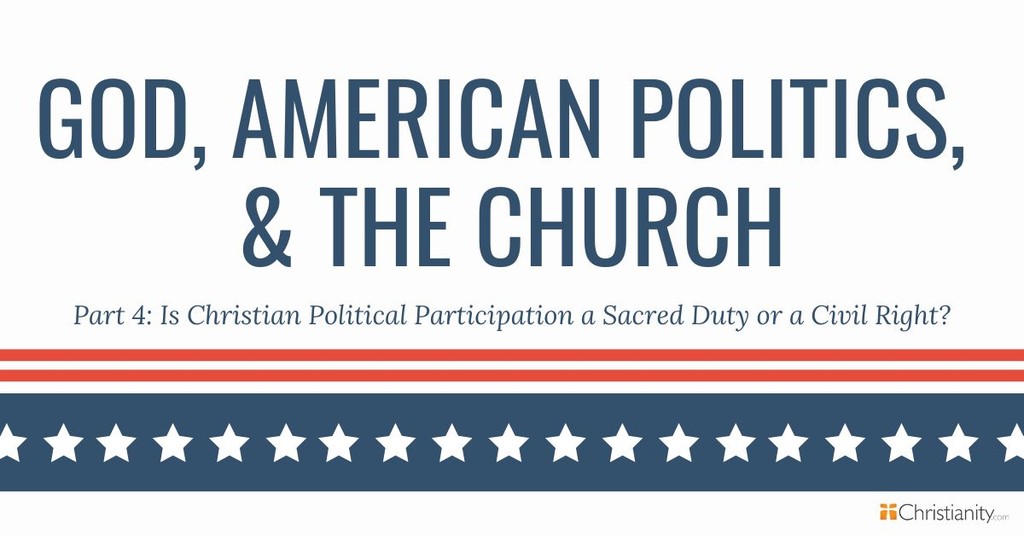
During a recent episode of Stand In the Gap, Sam Rohrer, the host of the show, asked me whether I viewed voting as a sacred duty or a civic privilege. In the relatively brief time we had on the show, I offered what I hope was a response representative of my own personal convictions: I believe voting (and certain other forms of political participation) are rights granted to all citizens of the United States rather than sacred duties. To clarify, rights, in my estimation, are acts made available to a certain group, and individuals may opt in or opt out as they desire (e.g., citizens of the United States have the right to bear arms). “Sacred duties” are non-negotiable theological requirements. This distinction is important because the way we think about various forms of political participation can skew the way we think about the church’s basic mission (i.e., discipleship).
Photo Credit: ©Getty Images/Hermosa Wave
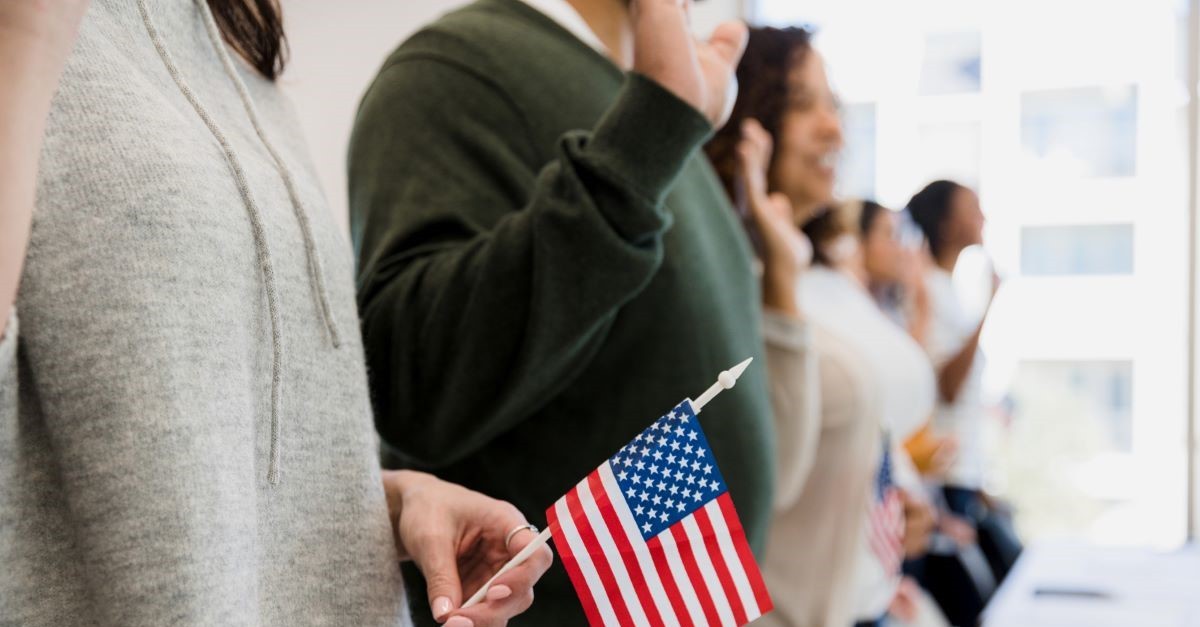
Is Being a Good Citizen a Sacred Duty?
In the Great Commission, we see that making (and, I would argue, being) disciples is linked to Christ’s authority over all things (Matt 28:18). As such, baptism is “in the name” of the Triune God rather than in the name of the baptizer or a specific denomination. We commit ourselves to the Triune God in baptism and not to anyone or anything else. Similarly, teaching others to obey is a component of discipleship. Yet, here again, the Great Commission makes specific who and what we are to learn to obey (i.e., Christ and all he commanded). As such, discipleship involves committing to and learning to live under the authority of Christ and no other.
The addition of the phrase “and no other” may seem problematic given various other biblical texts. How should we think about Peter’s instruction to “be subject for the Lord’s sake to every human institution, whether it be to the emperor as supreme, or to governors as sent by him” (1 Pet 2:13-14)? What about Romans 13:1 (“Let every person be subject to the governing authorities”)? What we need to recognize is that learning to live under Christ’s authority involves respecting the authority of the rulers God has put in place. Paul, for instance, nests the authority given to earthly rulers in God’s own authority (13:2). The rulers are to be respected because God has given them their authority. Still, it seems clear that earthly rulers can misuse the authority they have been given so that they end up pushing against rather than serving God (e.g., Dan 3:1-30; 6:1-28). As such, while we are to “honor the emperor,” we do so because we also “fear the Lord” (1 Pet 2:17).
When we think about being good citizens, we are right to understand it as a sacred duty because our actions within society are not simply or even primarily driven by societal conventions or the whims of those in authority but by our commitment to living holy lives under the authority of Christ. Good citizenship, in other words, is not separate from but emerges as a component of Christian discipleship. It is a specialized way of living under the authority of Jesus Christ by recognizing the legitimate and limited authority of earthly rulers and the institutions they oversee.
Being a good citizen is only a sacred act to the extent that such citizenship is an expression of obedience to the Triune God that points to and glorifies Him. Notions of “good citizenship” decoupled from the theological commission to be and make disciples are misleading because they tempt us to give governing bodies an authority autonomous from God or to expand the scope of their authority beyond what God has given them.
Being a good citizen is not a matter of giving ourselves over to the conventions of the day but of remaining faithful to Jesus Christ regardless of those conventions. At times, then, we should expect to “suffer unjustly” (1 Pet 2:19). Even if we are “zealous for what is good,” we may “suffer for righteousness’ sake” (2:13-14). Our faithful proclamation of the gospel in both word and deed will create friction with fallen rulers and institutions. At certain points, what the world sees as “good citizenship” will not align with being good disciples.
As such, Christians need to see our earthly citizenship as a theological endeavor serving the broader purpose of pointing to and glorifying the Triune God. Good citizenship is not an end in itself, nor is it something the world will always recognize or affirm. Instead, it results from our commitment to live as “a chosen race, a royal priesthood, a holy nation, a people for his [God’s] own possession” (2:9).
This way of understanding good citizenship is crucial because Christians can never elevate earthly citizenship above heavenly citizenship forged through discipleship. We can never “honor the emperor” instead of fearing God (2:17). We must always fear God and, in so doing, “honor the emperor.”
Still, the political realm consistently presses us to be shaped into something other than the image of Christ. As political commentator George Will notes,
“Men and women are biological facts. Ladies and gentlemen—citizens—are social artifacts, works of political art. They carry a culture that is sustained by wise laws and traditions of civility. At the end of the day, we are right to judge society by the character of the people it produces. That is why statecraft is, inevitably, soulcraft.”
Governing authorities and the human institutions they serve have no vested interest in making disciples for Jesus Christ. As such, the “character of the people” produced by the “wise laws and traditions of civility” will, at best, be generically moral. They may be guided by moral principles and intuitions made by human hands, but they are not disciples of Jesus.
Photo Credit: ©GettyImages/SDI Productions
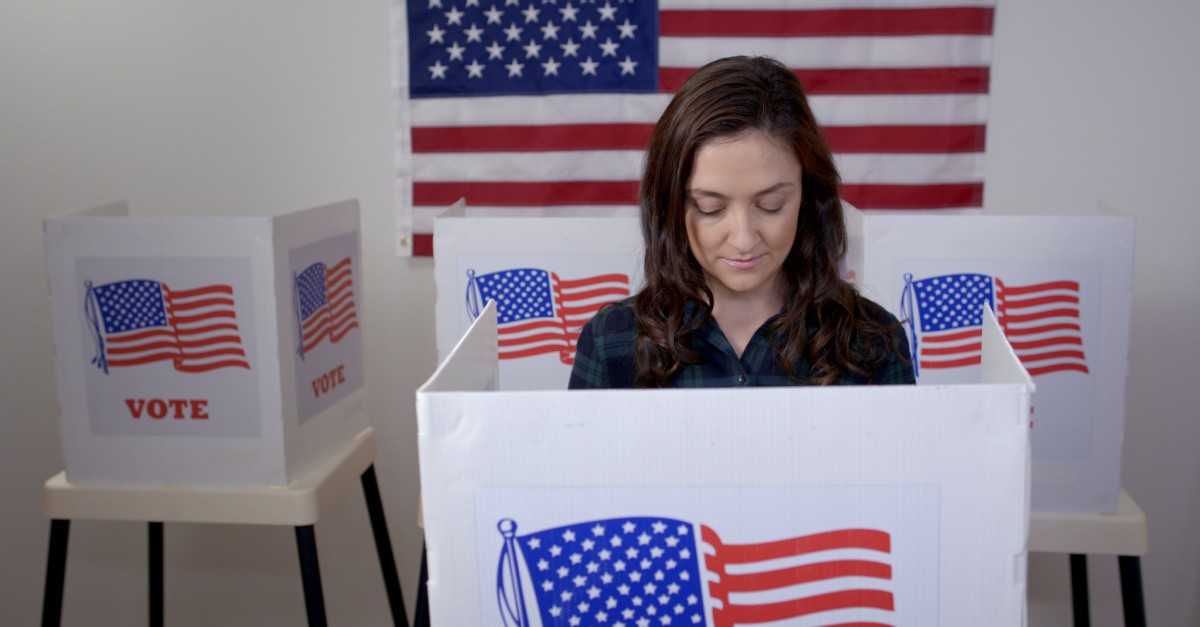
Is Voting a Sacred Duty or a Civil Right?
In seeking to understand voting as either a sacred duty or civil right, I am not attempting to suggest that Christians should or should not vote or that they should vote for one candidate over another. I agree with Peter Leithart, who notes, “Faith can be expressed in political action.” I am, however, seeking to (a) frame Christian thinking about voting and (b) understand voting as a potential way of pointing to and glorifying God.
I say “potential” to highlight two aspects of voting. The first aspect assumes that there is nothing intrinsic to voting that makes it God-glorifying. Just as we could various sexual, economic, or even spiritual practices can be deformed and distorted, voting (and other political acts) may also point away from or dishonor God.
The second aspect involves the impermanence of political practices like voting. Voting is a relatively recent and limited phenomenon. Christians in certain countries may have the right to vote, but that right is both durable and fragile. Christians, even Christians in the United States, may not have the right to vote. Even if Christians retain the right to vote, the significance of voting in determining the course of our nation may lessen over time.
So, is voting a sacred duty or a civil right? How should Christians think about voting? As noted previously, being a “good citizen” (i.e., being subject to ruling authorities and human institutions as an aspect of living under the authority of God) is a sacred duty. It is not sacred because we are citizens of the United States but because we have committed to being and making disciples of Christ. Our national affiliation is of relatively little consequence in determining whether following biblical mandates to be “good citizens” is a sacred duty.
Unlike good citizenship, voting is context-dependent. If voting were mandated by a given government, it would be similar to paying taxes. We would “render to Caesar the things that are Caesar’s” (Matt 22:21). So long as mandatory voting did not require theological compromise, Christians, along with all other citizens of a given nation, would be obligated to vote. It would become an act done in submission to ruling authorities and, thus, a sacred duty of sorts.
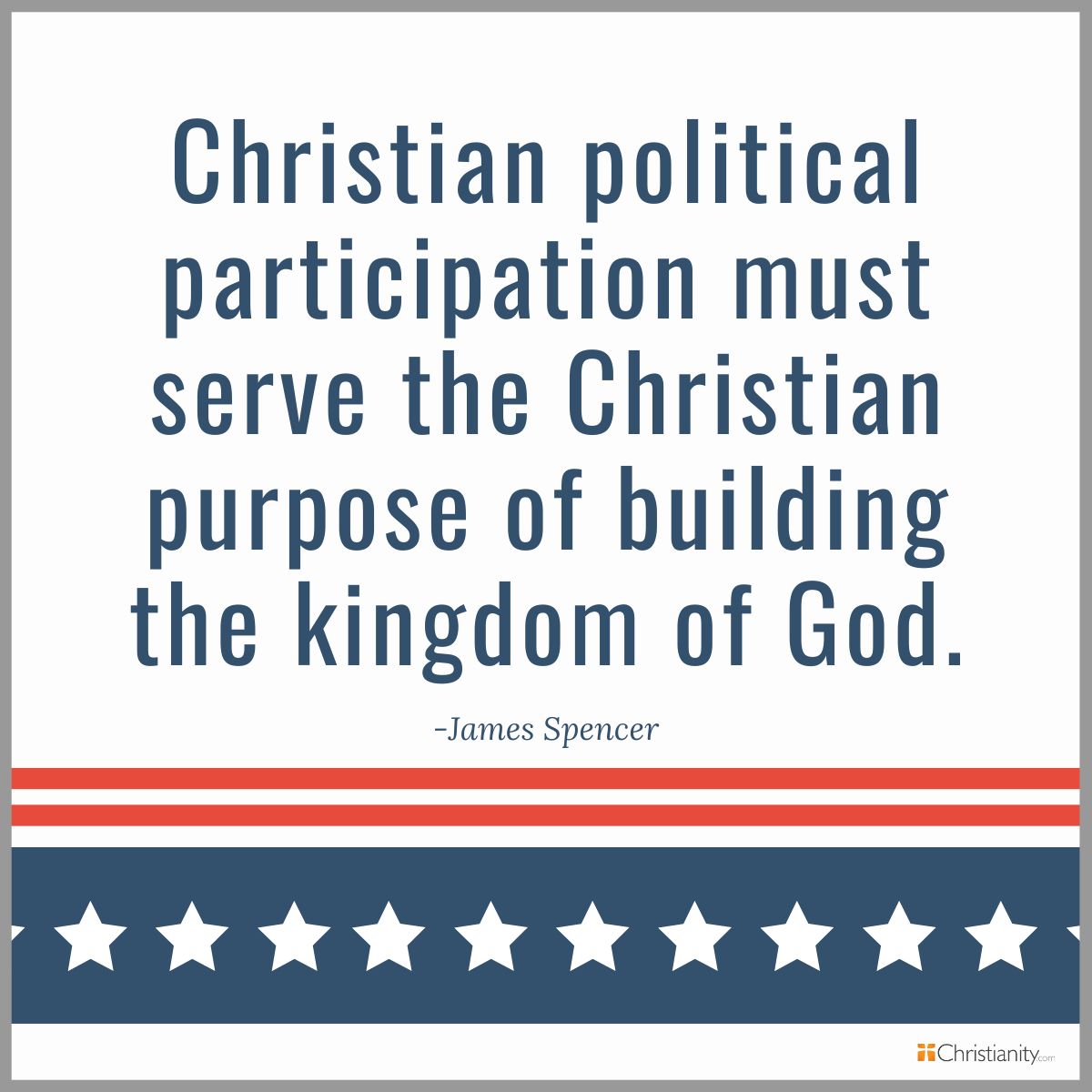
In the United States, however, voting is not mandatory. It is a right granted to citizens that may or may not be exercised at the discretion of individual citizens. Some may argue that voluntarily exercising one’s right to vote is part of what it means to “honor the emperor” or to “be subject to human institutions” and, thus, required for Christians. This line of argument, however, roots voting’s sanctity in a human notion of good citizenship that goes beyond what is required by human institutions or rulers. If we are not required to vote, there is little reason to assume we must vote out of Christian obligation.
Some may suggest that choosing our leaders is such an important task that not voting is unwise and apathetic. Declining to vote ignores one of the primary mechanisms Christians might use to influence the culture or to love one’s neighbor. Clearly, voting and other forms of political participation can serve such purposes. However, the practicality of voting doesn’t require us to view voting or other forms of political participation as sacred duties. We could simply recognize voting and political participation as one means we might consider as we seek to point to and glorify the Triune God. Political actions can be used to build God’s kingdom, but they could also detract from the kingdom.
Whatever arguments might be mustered in favor of Christian voting (and there are many good arguments), it seems best to understand voting as a civil right given to Christians who happen to be citizens of the United States. While it may be tempting to view voting as intrinsic to submitting to and honoring rulers and human institutions, the voluntary nature of voting in the United States tends to speak against this view. Suggesting that we “must” or “should” vote or participate politically in other ways may be a cultural expectation, but Christians often find themselves pushing against such expectations. Christian political participation must serve the Christian purpose of building the kingdom of God.
Photo Credit: ©Getty Images/Vesper Stock
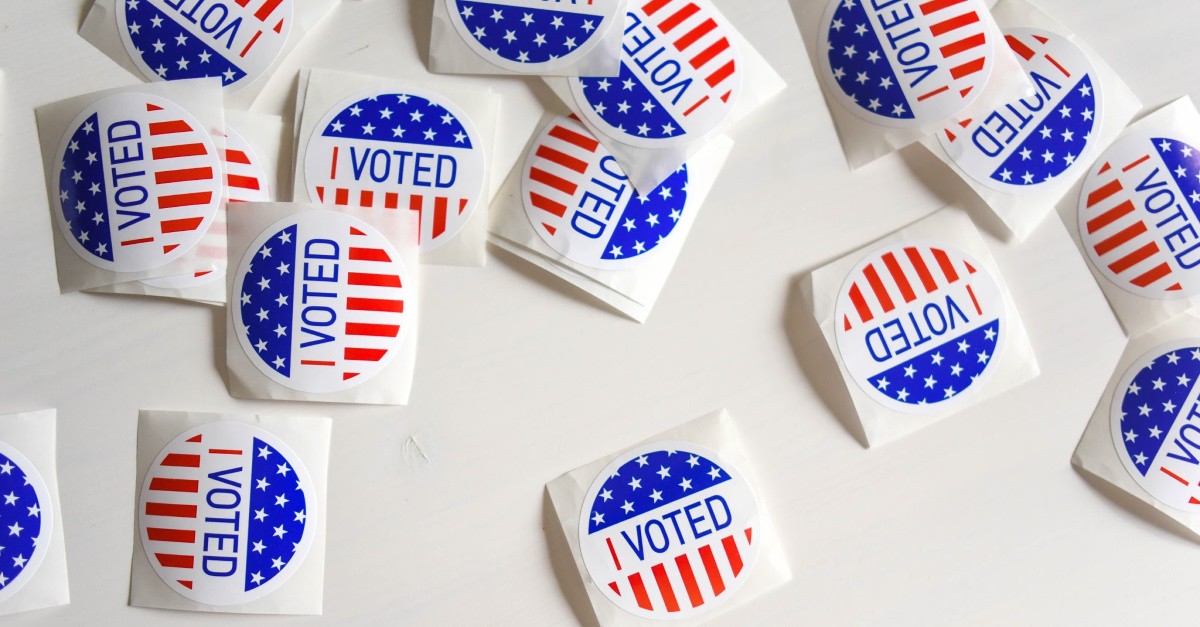
How Viewing Voting as a Right Changes Christian Decision-Making
If we view voting as a right given by the United States government to citizens that may be exercised at the discretion of individual citizens, we find some biblical and theological resources for thinking about exercising our rights. Voting is not a theological requirement but can, under certain circumstances, be a way for Christians to point to and glorify the Triune God. Christians…even Christians in the United States…do not exist to serve the political realm, so voting and other forms of political participation must serve our mission. We exist to point beyond it to the God who gives that realm its limited authority. As such, when we think about voting as a civil right, we need to keep certain considerations in mind.
3 Important Things for Christians to Consider about Voting
1. If voting is understood as a civil right, Christians may choose to take up or set aside that right for the sake of the gospel.
While he does not appear to be highlighting his rights as a Roman citizen, Paul makes clear that he is less concerned with asserting his rights than with the progress of the gospel (1 Cor 9:1-27) and the building up of the body of Christ (1 Cor 8:9; cf. Rom 14;1-15:7). Our rights and freedoms are not trivial, yet they are not paramount either. To the degree that we can exercise our rights while also building up the body of Christ and pursuing our own Christlikeness, we may certainly do so. However, whether or not we exercise our rights involves discernment because, at times, exercising our rights may create unnecessary obstacles to the gospel. The impetus to engage in political action cannot overshadow the proclamation of the gospel…it must serve the gospel.
2. While voting, as noted previously, may be a powerful way of loving our neighbor, Christians are not simply called to love our neighbor.
We are also called to love our enemies. As Kevin Vanhoozer notes while commenting on Augustine’s view of love, “To love our enemies is to love them in order that they become our brothers; to love someone is to love them that they may be at one with us, that they also may love.” Our call to love our enemies should keep us alert to the ways political participation can become contentious. We should not forget that political wins (or even political participation) may create barriers to the gospel. While we can’t control the perceptions or reactions of others, we can seek to ensure that others don’t hate us because of our political stance. If they reject our message, we don’t want it to be our political, but our theological message.
3. Elections and, by extension, voting are often understood as ways to steer the course of our nation.
While elections and voting do have certain temporal impacts on our country, no election can fix what is wrong with our nation. We need to be reminding the world that even the most moral of our collective intuitions are misdirected. Votes are, at best, a means of restraining evil in the short-term…but only in the short-term. As such, we need to find ways to make clear that voting is distinct from hope. In strict theological terms, there is only one hope…Jesus Christ…for any nation (whether democratic, socialist, communist, etc.).
This treatment of citizenship, voting, and political participation is not intended to discourage Christians from voting or participating in politics. Instead, it is intended to encourage Christians to approach decisions about voting and political participation from a theological perspective. Political participation can advance God’s kingdom so long as Christians approach politics with a disciplined posture. Our purpose is to glorify God and proclaim the gospel. If we compromise our faith to win an election, we will have accomplished nothing of consequence. As such, we must take care to adopt a framework for political engagement that emerges from our commitment to be and make disciples of Jesus Christ and advance the kingdom of God.
Click here to read Part 1: 3 Meaningful Actions Christians Can Take for Our Nation
Click here to read Part 2: How Can We Distinguish between Church and State?
Click here to read Part 3: Thinking Like a Christian This Election Season
Click here to read Part 4: Is Christian Political Participation a Sacred Duty or a Civil Right?
Click here to read Part 5: What Role Should Law Play in Christian Political Participation?
Photo Credit: Element5 Digital/Unsplash

Originally published Tuesday, 13 August 2024.
